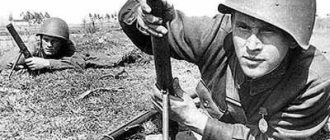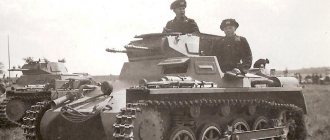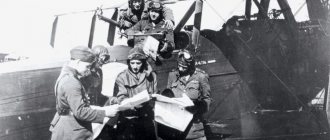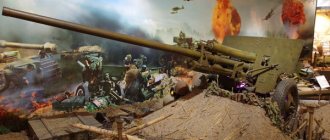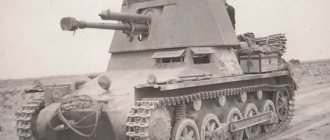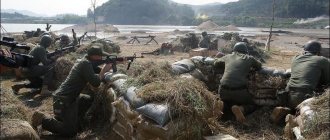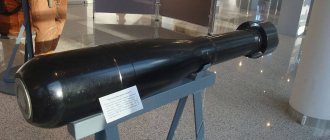Great Britain was not occupied by Germany during the Second World War, but this did not save the country from destruction, loss of population and resources. The aviation and navy of the Third Reich regularly attacked the cities of the British Isles, sank ships and submarines, and ground military equipment. The British also died on the fronts of World War II, as the country's government sent its soldiers to the Middle and Far East, Japan, Asia, the Balkan and Apennine Peninsulas, the Atlantic, Scandinavia, India, and North Africa. The British took part in the invasion of Germany in the last months of the war, the capture and occupation of Berlin. Therefore, the consequences, outcomes and results of the Second World War were difficult for Great Britain in economic, social and political terms. The country's government declared war on Hitler and Germany on September 3, 1939, immediately after the capture of Poland, and until September 2, Britain was at war with the Third Reich. Only after the surrender of Japan was the war over for the British state and its population.
About political games
Despite the fact that the history of the war, told to English schoolchildren, notes that it was the Molotov-Ribbentrop Pact in 1939 that gave the green light to the Nazi troops, it cannot be ignored that the Munich Agreement, which England signed a year earlier as part of other countries with Germany, divided Czechoslovakia. And, according to numerous studies, this was a prelude to future large-scale military operations.
In September 1938, an agreement was signed between England and Germany on mutual non-aggression. This was the culmination of British appeasement policies. Hitler easily convinced the prime minister in Foggy Albion that the agreements in Munich would guarantee security in European states.
According to experts, England hoped to the last for diplomacy, through which it wanted to rebuild the Versailles system. However, back in 1938, many experts emphasized that the presence of concessions to Germany would only push it to aggressive actions.
When Chamberlain returned to London, he said that he had “brought peace to our generation.” To this one day Winston Churchill Fr. These words turned out to be prophetic.
Surrender of Germany
In 1945, Anglo-American troops began to advance towards Germany. German cities and enterprises turned into ruins as bombers constantly attacked various objects, many of which were unique monuments of history, culture and architecture. Civilians also became numerous victims of the strikes.
At the end of winter - beginning of March 1945, British troops, as part of the Allied forces, helped push German troops beyond the Rhine. The offensive took place in all directions:
- In April, the German army located in Italy surrendered;
- In early May, fighting intensified on the northern flank of the Allied front, which contributed to the liberation of Denmark, Mecklenburg, and Schleswig-Holstein;
- On May 7, the act of surrender of Germany was signed in Reims, signed by General A. Jodl.
The Soviet side opposed such actions, since the document was drawn up unilaterally at the American headquarters of D. Eisenhower. Therefore, the next day, all the allies - the Soviet Union, Britain, the USA and France - were gathered on the outskirts of Berlin, and the act of surrender was re-signed. At the end of May 1945, the British, under pressure from the USA and the USSR, arrested the German generals who commanded in the British zone of occupation.
In 1945, the British army took an active part in military operations in Southeast Asia, liberating Burma from Japanese troops. The British did not ignore the Far East, where the offensive was carried out by the Pacific Fleet, formed by Britain in the fall of 1944.
Thus, the British Army took an active part in all important operations of the final period of the Second World War, supporting the actions of the Allies and individual states.
About the “strange war”
In September 1939, Germany launched an invasion of Poland. On the same day, on the eve of World War II, England sent a note of protest to Germany. And then the state of Foggy Albion, as the guarantor of Poland’s independence, declares war on the Nazis. After the next 10 days, the British Commonwealth does the same.
In October, the British army lands four divisions on the continent, which remain at the Franco-Belgian borders. It was far from the epicenter of hostilities. Here the Allies created more than 40 airfields, but instead of bombing German positions, British aircraft began scattering propaganda leaflets that appealed to the morality of the Nazis. A few more months later, 6 more British divisions landed in France, but none of them started the war. Thus the “strange war” continued.
The General Staff of England during the Second World War explained this by saying that there was “anxiety and unrest.” The French writer Roland Dorgeles described how the Allied troops calmly watched the fascist trains with ammunition run over. It was as if the leadership was most afraid of disturbing the enemy.
Experts argue that this behavior of England during the Second World War is explained by its adoption of a wait-and-see attitude. The Allies tried to understand where Germany would go after capturing Poland. And it is possible that if the Wehrmacht had gone to the USSR immediately after Poland, they would have supported Hitler.
British Army Forces
The basis of Great Britain's power was the fleet, which was one of the strongest in Europe. In 1939, the number of military personnel of various ranks in the army was about 900 thousand people, and another 350-360 thousand soldiers were stationed in the colonies. The main forces of the state were concentrated in the British Isles - regular divisions and brigades - territorial, infantry, cavalry, tank. In reserve there were seven regular divisions and many separate brigades formed on the basis of the British and Indians.
Before the war, the number of aircraft units that were transferred to the army's balance increased sharply. Aviation was reinforced with bombers, and the navy with battleships and aircraft-carrying ships.
Miracle at Dunkirk
On May 10, 1940, according to the Gelb plan, Germany invaded Holland, Belgium, and France. Then the game in politics ended. Churchill began to assess the enemy's strength soberly. He issued a decision to evacuate British units near Dunkirk, along with the remnants of the French and Belgian troops. Military experts did not believe that Operation Dynamo would be successful.
It cost the nearby Germans nothing to defeat the demoralized allies. But a miracle happened, and about 350,000 soldiers managed to reach the opposite shore. Suddenly Hitler decided to stop the troops, and Guderian called this decision a political one. There is a version that there was a secret agreement between the Germans and the British.
After Dunkirk, it became clear that England, having entered the Second World War, remained the only country that managed to avoid complete capitulation to the Nazis. Her situation worsened by the summer of 1940. Then fascist Italy took the side of Germany.
Eileen Nearn
This remarkable woman remains an unsung British heroine. She grew up in France. But when the Nazi invasion began there, she crossed over to Great Britain. She was safe, but could not put her French education to good use.
She then underwent special training at the Special Operations Intelligence Agency, known as Churchill's Secret Army. After completing the course, Eileen Nearn was sent to France. The girl had to jump with a parachute. She was only 23 years old. In France, Eileen began working undercover. The young intelligence officer was always in danger. She operated a secret radio station, transmitting messages from Paris to London. Her code name was "Rose".
With the help of such a connection, the delivery of weapons to the French Resistance was organized. Eileen Nearn was captured by the Gestapo. The brave scout was sent to the Ravensbrück concentration camp. Eileen was brutally tortured, but the heroine of the Resistance did not reveal her real name and mission. Twice she tried to escape from the concentration camp, but both attempts were unsuccessful. The legendary intelligence officer died in 2010. Her story is worthy of Hollywood.
Battle of Britain
The Wehrmacht still had plans to capture Foggy Albion, and the Battle of Britain in World War II was inevitable. In July 1940, the Germans began bombing British coastal convoys and naval bases. In August, airfields, aircraft factories, and London were attacked.
The British Air Force gave an answer - a day later, 81 bombers advanced to Berlin. Despite the fact that only more than 10 aircraft reached the target, Hitler was furious. He decided to unleash the full power of the Luftwaffe on Britain, and the sky above it literally began to “boil.” At this stage, England's civilian losses in World War II amounted to 1,000 people. But soon the intensity of the attacks decreased due to the effective counteraction of British aircraft.
Lady of the Seas
After the bombing, the Wehrmacht planned Operation Sea Lion to invade Britain. But it was not possible to win in the air. And then the Reich leadership was skeptical about the landing operation. German generals argued that German strength was concentrated on land, not sea. The land army of Foggy Albion was no stronger than the defeated French, and a ground operation against the British could be successful.
An English military historian argued that the country managed to survive the Battle of England in World War II thanks to a water barrier. Berlin was aware that its fleet was weaker than the British. Thus, the British Navy had 7 active aircraft carriers and 6 on the slipway, and Germany was not able to equip one of its aircraft carriers. On water, such a ratio would predetermine the outcome of any battle.
Only German submarines could seriously hit English merchant ships. But, with the support of the United States, England sank 783 German submarines in World War II. And then the British Navy won the Battle of the Atlantic.
Until the winter of 1942, Hitler cherished the hope of taking Britain from the sea. But Admiral Erich Raeder convinced him to forget about it.
Britain at War: The Initial Period
Having declared war on Germany on September 3, 1939, Neville Chamberlain tried to keep the country from direct participation in hostilities. Until May 1940, a “strange war” was fought, which ended with the capture of Belgium, Holland and France. After this, Chamberlain's government began to prepare for war. To prevent Hitler from using the French fleet to attack Britain, the British attacked first. The target was the harbor of Mers el-Kebir, located in Algeria. Having destroyed a huge number of ships, England captured many ships that were stationed in British ports. In addition, there was a complete blockade of the French fleet in the port of Alexandria (Egypt).
At this time, Hitler began to concentrate troops on the banks of the English Channel, preparing for the invasion of the British Isles. The first blow was delivered not from the sea, but from the air. In August 1940, German aircraft carried out a series of attacks on military factories, enterprises, and airfields in Great Britain. Large cities were also affected. The raids were carried out mainly at night, which led to the death of a significant number of civilians. The targets of the bombing were streets, residential buildings, cathedrals, churches, stadiums, and factories.
British air power, supported by Canada and the United States, carried out retaliatory strikes. As a result, in September 1940, both Germany and Britain were exhausted by constant raids, many people died, equipment was damaged, which made the planned German invasion of the British Isles impossible. Hitler's carefully planned Operation Sea Lion was shelved because there were not enough aircraft to break the resistance of Britain, which was fighting the Third Reich alone. The United States did not provide military assistance, but only provided combat ships from which British planes took off.
About colonial interests
Since one of England's important tasks even before World War II was to protect Egypt with the Suez Canal, Britain paid a lot of attention to the Mediterranean theater of operations. But there the British fought in the deserts. And it was a shameful defeat that occurred in June 1942. The British had twice the strength and technology of Erwin Rommel's Afrika Korps, but lost. And only in October 1942 the British turned the tide of the battles at El Alamein, again having a significant advantage (for example, in aviation it was 1200:120).
In May 1943, the British and Americans achieved the surrender of 250,000 Italo-Germans in Tunisia, and the way was opened for Allied forces in Italy. In North Africa, England lost 220,000 soldiers and officers in World War II. A second chance for rehabilitation after a shameful flight from the continent four years ago was the opening of the Second Front on June 6, 1944 for England.
Then the Allies were completely superior to the Germans. However, in December 1944, near the Ardennes, a German armored group managed to push through the line of American troops. Then the Americans lost 19,000 soldiers, and the British - about 200. This ratio of losses caused disagreements among the allies. Only the intervention of Dwight Eisenhower in the conflict allowed it to be resolved.
Great concern for England in World War II was caused by the fact that the USSR liberated most of the Balkans at the end of 1944. Churchill did not want to lose control of the Mediterranean and shared his sphere of influence with Stalin.
The tacit agreement of the Soviet Union and the United States led to Britain's suppression of communist resistance in Greece, and in January 1945 it began to control Attica. And then the Soviet threat to Britain became great.
Login to the site
The results of Britain's participation in World War II were mixed.
The country retained its independence and made a significant contribution to the victory over fascism, at the same time it lost its role as a world leader and came close to losing its colonial status. Political games
British military historiography often likes to remind that the Molotov-Ribbentrop Pact of 1939 actually gave the German military machine a free hand. At the same time, the Munich Agreement, signed by England together with France, Italy and Germany a year earlier, is being ignored in Foggy Albion. The result of this conspiracy was the division of Czechoslovakia, which, according to many researchers, was the prelude to World War II.
On September 30, 1938, in Munich, Great Britain and Germany signed another agreement - a declaration of mutual non-aggression, which was the culmination of the British “policy of appeasement.” Hitler quite easily managed to convince British Prime Minister Arthur Chamberlain that the Munich Agreements would be a guarantee of security in Europe.
Historians believe that Britain had high hopes for diplomacy, with the help of which it hoped to rebuild the Versailles system in crisis, although already in 1938 many politicians warned the peacemakers: “concessions to Germany will only embolden the aggressor!”
Returning to London on the plane, Chamberlain said: “I brought peace to our generation.”
To which Winston Churchill, then a parliamentarian, prophetically remarked: “England was offered a choice between war and dishonor. She chose dishonor and will get war.” “The Strange War”
On September 1, 1939, Germany invaded Poland. On the same day, Chamberlain's government sent a note of protest to Berlin, and on September 3, Great Britain, as the guarantor of Poland's independence, declared war on Germany. Over the next ten days, the entire British Commonwealth will join it.
By mid-October, the British transported four divisions to the continent and took up positions along the Franco-Belgian border. However, the section between the cities of Mold and Bayel, which is a continuation of the Maginot Line, was far from the epicenter of hostilities. Here the Allies created more than 40 airfields, but instead of bombing German positions, British aviation began scattering propaganda leaflets appealing to the morality of the Germans.
In the following months, six more British divisions arrived in France, but neither the British nor the French were in a hurry to take active action. This is how the “strange war” was waged. Chief of the British General Staff Edmund Ironside described the situation as follows: “passive waiting with all the worries and anxieties that follow from this.”
French writer Roland Dorgeles recalled how the Allies calmly watched the movement of German ammunition trains: “obviously the main concern of the high command was not to disturb the enemy.”
Historians have no doubt that the “Phantom War” is explained by the wait-and-see attitude of the Allies.
Both Great Britain and France had to understand where German aggression would turn after the capture of Poland. It is possible that if the Wehrmacht immediately launched an invasion of the USSR after the Polish campaign, the Allies could support Hitler. The Miracle of Dunkirk
On May 10, 1940, according to Plan Gelb, Germany launched an invasion of Holland, Belgium and France. The political games are over. Churchill, who took office as Prime Minister of the United Kingdom, soberly assessed the enemy’s forces. As soon as German troops took control of Boulogne and Calais, he decided to evacuate parts of the British Expeditionary Force that were trapped in the cauldron at Dunkirk, and with them the remnants of the French and Belgian divisions. 693 British and about 250 French ships under the command of English Rear Admiral Bertram Ramsay planned to transport about 350,000 coalition troops across the English Channel.
Military experts had little faith in the success of the operation under the sonorous name “Dynamo”. The advance detachment of Guderian's 19th Panzer Corps was located a few kilometers from Dunkirk and, if desired, could easily defeat the demoralized allies. But a miracle happened: 337,131 soldiers, most of whom were British, reached the opposite bank almost without interference.
Hitler unexpectedly stopped the advance of the German troops. Guderian called this decision purely political. Historians differ in their assessment of the controversial episode of the war. Some believe that the Fuhrer wanted to save his strength, but others are confident in a secret agreement between the British and German governments.
One way or another, after the Dunkirk disaster, Britain remained the only country that avoided complete defeat and was able to resist the seemingly invincible German machine.
On June 10, 1940, England's position became threatening when fascist Italy entered the war on the side of Nazi Germany. The Battle of England
Germany's plans to force Great Britain to surrender have not been canceled. In July 1940, British coastal convoys and naval bases were subjected to massive bombing by the German Air Force; in August, the Luftwaffe switched to airfields and aircraft factories.
On August 24, German aircraft carried out their first bombing attack on central London. According to some, it is wrong. The retaliatory attack was not long in coming. A day later, 81 RAF bombers flew to Berlin. No more than a dozen reached the target, but this was enough to infuriate Hitler. At a meeting of the German command in Holland, it was decided to unleash the full power of the Luftwaffe on the British Isles.
Within weeks, the skies over British cities turned into a boiling cauldron. Birmingham, Liverpool, Bristol, Cardiff, Coventry, Belfast got it. During the whole of August, at least 1,000 British citizens died. However, from mid-September the intensity of the bombing began to decrease, due to the effective counteraction of British fighter aircraft.
The Battle of Britain is better characterized by numbers.
In total, 2,913 British Air Force aircraft and 4,549 Luftwaffe aircraft were involved in air battles. Historians estimate the losses of both sides at 1,547 Royal Air Force fighters and 1,887 German aircraft shot down. Mistress of the Seas
It is known that after the successful bombing of England, Hitler intended to launch Operation Sea Lion to invade the British Isles. However, the desired air superiority was not achieved. In turn, the Reich military command was skeptical about the landing operation. According to German generals, the strength of the German army lay precisely on land, and not at sea.
Military experts were confident that the British ground army was no stronger than the broken armed forces of France, and Germany had every chance of overpowering the United Kingdom's forces in a ground operation. The English military historian Liddell Hart noted that England managed to hold out only due to the water barrier.
In Berlin they realized that the German fleet was noticeably inferior to the English. For example, by the beginning of the war, the British Navy had seven operational aircraft carriers and six more on the slipway, while Germany was never able to equip at least one of its aircraft carriers. In the open seas, the presence of carrier-based aircraft could predetermine the outcome of any battle.
The German submarine fleet was only able to inflict serious damage on British merchant ships.
However, having sunk 783 German submarines with US support, the British Navy won the Battle of the Atlantic. Until February 1942, the Fuhrer hoped to conquer England from the sea, until the commander of the Kriegsmarine, Admiral Erich Raeder, finally convinced him to abandon this idea. Colonial interests
As early as the beginning of 1939, the British Chiefs of Staff Committee recognized the defense of Egypt with its Suez Canal as one of its strategically most important tasks. Hence the special attention of the Kingdom's armed forces to the Mediterranean theater of operations.
Unfortunately, the British had to fight not at sea, but in the desert. May-June 1942 turned out for England, according to historians, as a “shameful defeat” at Tobruk from Erwin Rommel’s Afrika Korps. And this despite the British having twice the superiority in strength and technology!
The British were able to turn the tide of the North African campaign only in October 1942 at the Battle of El Alamein. Again having a significant advantage (for example, in aviation 1200:120), the British Expeditionary Force of General Montgomery managed to defeat a group of 4 German and 8 Italian divisions under the command of the already familiar Rommel.
Churchill remarked about this battle: “Before El Alamein we did not win a single victory.
We haven't suffered a single defeat since El Alamein." By May 1943, British and American troops forced the 250,000-strong Italian-German group in Tunisia to capitulate, which opened the way for the Allies to Italy. In North Africa, the British lost about 220 thousand soldiers and officers. And again in Europe
On June 6, 1944, with the opening of the Second Front, British troops had the opportunity to rehabilitate themselves for their shameful flight from the continent four years earlier. The overall leadership of the allied ground forces was entrusted to the experienced Montgomery. By the end of August, the total superiority of the Allies had crushed German resistance in France.
Events unfolded in a different vein in December 1944 near the Ardennes, when a German armored group literally pushed through the lines of American troops. In the Ardennes meat grinder, the US Army lost over 19 thousand soldiers, the British no more than two hundred.
This ratio of losses led to disagreements in the Allied camp. American generals Bradley and Patton threatened to resign if Montgomery did not leave leadership of the army. Montgomery's self-confident statement at a press conference on January 7, 1945, that it was British troops who saved the Americans from the prospect of encirclement, jeopardized the further joint operation. Only thanks to the intervention of the commander in chief of the allied forces, Dwight Eisenhower, was the conflict resolved.
By the end of 1944, the Soviet Union had liberated large parts of the Balkan Peninsula, which caused serious concern in Britain. Churchill, who did not want to lose control over the important Mediterranean region, proposed to Stalin a division of the sphere of influence, as a result of which Moscow got Romania, London - Greece.
In fact, with the tacit consent of the USSR and the USA, Great Britain suppressed the resistance of the Greek communist forces and on January 11, 1945, established complete control over Attica. It was then that a new enemy clearly loomed on the horizon of British foreign policy. “In my eyes, the Soviet threat had already replaced the Nazi enemy,” Churchill recalled in his memoirs.
According to the 12-volume History of the Second World War, Britain and its colonies lost 450,000 people in World War II. Britain's expenses for waging the war amounted to more than half of foreign capital investments; the Kingdom's external debt by the end of the war reached 3 billion pounds sterling. The UK paid off all its debts only by 2006.
Source
About the culprits
Countries shift responsibility for the start of this war onto each other, and this issue is still relevant. It is impossible not to take into account that a whole range of factors played a role. While the West blames the Soviet Union for colluding with the Germans in 1939 with the signing of the Molotov-Ribbentrop Pact, Russian historians blame England and France for the rise of Germany. Thus, London and Paris tried to appease the Nazi regime by allowing it to satisfy its appetite in Eastern European countries.
But historians agree on one fact: the Nazis gained power thanks to events that radically changed the national identity of the German people. The thing is that after the defeat in the First World War, revanchist sentiments grew in German society.
Indeed, in 1919, significant restrictions were imposed on Germany - it had to pay billions of dollars to the victorious countries, and give the coal-rich Alsace-Lorraine to France, and its lands to Poland, and the Saar region for 15 years to transfer to the League of Nations.
There were also restrictions on the number of German armed forces, and the navy was lost. All these conditions were enslaving. The main supporter of brutal sanctions against the defeated country was France, which wanted to get rid of a competitor and potential military enemy.
England agreed with the initiatives of the French. And then, playing on the deep desire of the Germans to return to a decent life, Adolf Hitler appeared on the forefront of the country in 1933.
Peter Robert Bandham Banks
In 1942, the Japanese invaded Burma. Under their pressure, the British military and local residents loyal to the British were forced to retreat to India. But several British officers volunteered to remain in Japanese-held territory.
Among them was Captain Bandham Banks. Brave officers began to help local residents assemble partisan detachments. Captain Banks was the son of a Norfolk clergyman and was educated at Oxford. He was nicknamed Grandfather Long-Legs for his lanky figure. Local residents were armed with flintlock muzzleloaders from the Boer War era, as well as swords, knives and spears.
But later they began to use weapons taken from enemy soldiers. In mountainous areas, they lured the Japanese into ambush and destroyed them. Banks' long legs helped him move quickly over the hills. The Chin warriors, with whom the British fought alongside, held the front line for hundreds of miles, preventing the Japanese from crossing into India.
Captain Banks was shot and killed in 1943 by a Chin traitor. The hero at that time was only 32 years old. Banks was posthumously awarded the Military Cross for "gallant and distinguished service in Burma and on the eastern frontiers of India." The British captain became a national hero in Myanmar. The grave of the British captain is located in the village of Lampthang. Residents call this place “Gentleman Banks Mountain.”
About the lesser evil
In addition, as a result of the Treaty of Versailles, two major players were eliminated from the political game - Germany and the young Soviets. Thanks to their isolation, the two states grew closer in the 1920s.
When the Nazi dictatorship was established, relations between them cooled. In 1936, Germany and Japan concluded the Anti-Comintern Pact, which was supposed to counter the spread of communist ideology.
The growing Soviet Union caused many concerns among Western states. And, by helping to strengthen Germany, England, together with France, hoped to contain the “communist threat” in this way.
And Hitler took advantage of this fear. In 1938, having received the consent of England and France, he returned Austria and the Sudetenland to Czechoslovakia. In 1939, he began to demand that Poland return the “Polish Corridor”. Having concluded agreements with France and England, Warsaw counted on their help.
Hitler understood that, having occupied Poland, he would clash with France and England, and perhaps with the USSR, which sought to regain the eastern Polish territories taken in 1921.
And then, in the spring of 1939, Berlin began to soften its rhetoric towards Moscow. And as a result, the Molotov-Ribbentrop Pact was concluded.
Bill Tutt
Speaking about the intellectuals who served the British king, we must not forget about Bill Tutt.
Since childhood, Bill was interested in mathematics, and in his youth, while studying at Cambridge University, he received a special scholarship.
During the war, he, like some of his classmates, was recruited to work at Bletchley Park, where he worked on deciphering intercepted enemy messages sent by Hitler's command, encrypted by the Enigma machine.
But the Germans, having learned that Enigma had been deciphered, began to use a more complex device - the Lorenz system - to classify the transmitted information.
Particularly important correspondence was carried out only using the new system. For six months, Bill Tutt tried to crack this scheme without even seeing the device itself. Ultimately, he succeeded, and the British gained access to Hitler's particularly important correspondence. Tutt's work played a vital role in British success at the front.
About the fatal pause
The prevailing belief in Polish society is that the partition of Poland in 1939 could have been avoided. Then the French and British troops would be able to strike western Germany, forcing Hitler to return the troops to the barracks.
And Poland relied on facts: after all, in 1939 the balance of power was in favor of France and England. So, in aviation the balance of forces was 3300 aircraft versus 1200, and this is only when comparing France and the Third Reich. And during this period, England also entered the Second World War.
In September 1939, the French crossed the German borders, capturing more than 10 settlements. But in 5 days they broke through only 32 km deep into German territories. On September 12, the French called off the offensive.
The Wehrmacht had mined the border strips even before the French invasion. And while the French were moving deeper, the Germans launched sudden counterattacks. On September 17, the Reich returned all lost territories.
England refused to help Poland. And royal forces appeared on the German borders only in October 1939, when Nazi troops were already in Warsaw.
This reluctance of England to “bother the enemy” surprised many contemporaries. This was called the “strange war” by the press. As the French took cover behind the Maginot Line, they watched the German army reinforce itself with new forces.
Thus, all these facts indicate that the rise of Hitler's regime was a consequence of short-sightedness in the policies of England and France after the First World War. Their actions fueled the radical mood of German society. A complex of a humiliated nation appeared, which became fertile ground for the socialist party under the leadership of Adolf Hitler.
